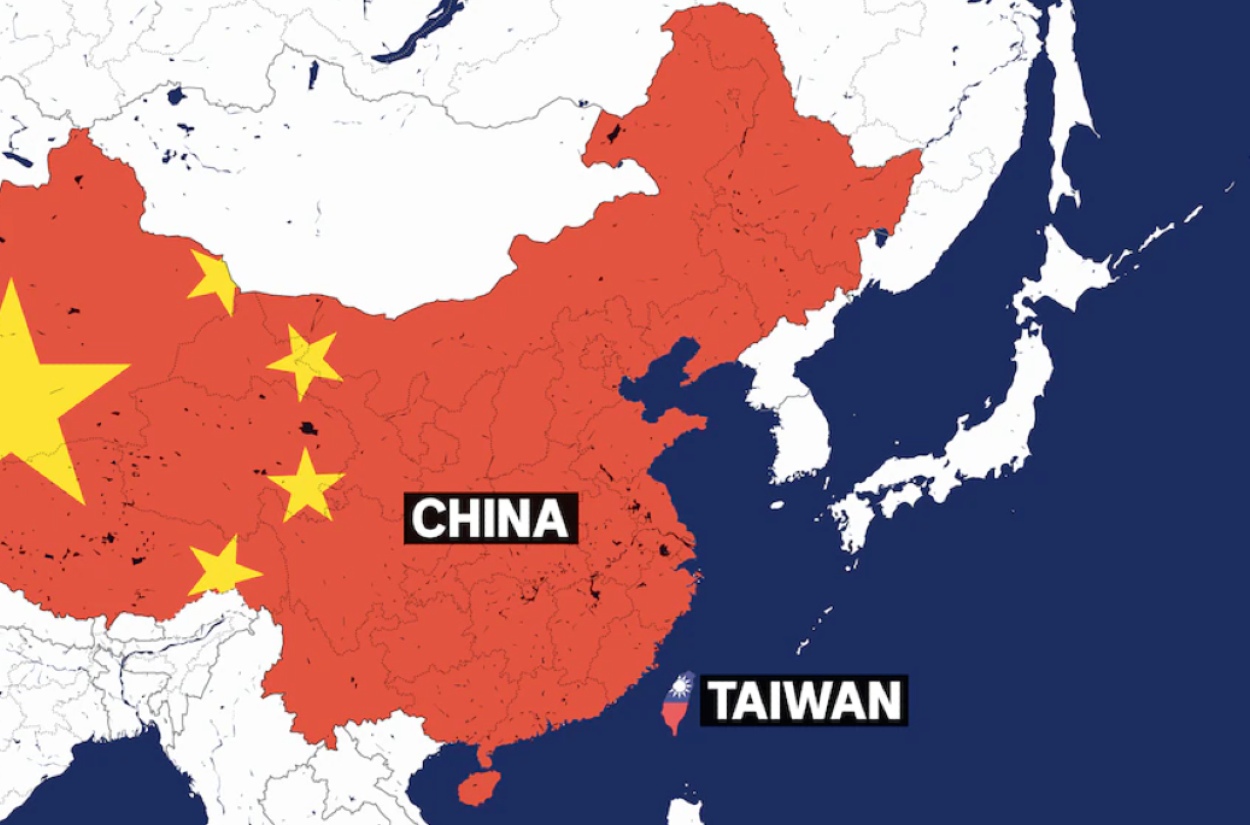China’s Probes Foxconn As Founder Terry Gou Enters Taiwan’s Presidency Race; Taiwan’s Presidential Front-Runner Condemns Pressure
Taiwan's Vice President and leading presidential candidate, Lai Ching-te, has voiced strong criticism of China's ongoing investigation into Foxconn, a major supplier to tech giant Apple, as the founder, Terry Gou, announced his entry into Taiwan's Presidential race. The probe, which comes amid a sensitive political climate in Taiwan, has raised concerns about potential interference in the upcoming January elections.

China is currently conducting an investigation into Foxconn, one of Apple’s major suppliers, as reported by state media. The development follows the announcement of Foxconn’s founder, Terry Gou, entering the race for Taiwan’s presidency; Gou emphasized that he would not yield to pressure from Beijing, despite having extensive business operations in China.
The connection between these investigations and Gou’s political ambitions remains uncertain, but analysts believe this will cause concern among foreign businesses operating in China.
According to the state-owned Global Times, Chinese tax authorities have recently audited Foxconn’s key subsidiaries in Guangdong and Jiangsu provinces, where the company maintains significant factories.
The Ministry of Natural Resources also looked into Foxconn’s land use in Henan and Hubei provinces.
Foxconn, on its part, has stated its commitment to complying with the law and cooperating with relevant authorities.
Foxconn, also known as Hon Hai Precision Industry, operates iPhone factories in Guangdong and Henan, including the world’s largest facility in Zhengzhou.

In response to these developments, Foxconn’s listed unit in Shanghai, Foxconn Industrial Internet, saw a 10% drop in its stock price, and the parent company, Foxconn Technology, listed in Taipei, experienced a more than 2% decline.
These investigations have come to light following reports of Chinese authorities raiding the Shanghai office of the international advertising agency GroupM, owned by WPP, adding to the concerns of foreign businesses operating in China.
Foxconn is a major global contract manufacturer, producing a wide range of products for clients such as Apple; it has been operating in China since 1988 and is one of the largest private employers in the country.
Terry Gou, the founder and former chairman of Foxconn, announced his bid for Taiwan’s presidential election in January as an independent candidate and has expressed his determination not to bow to Beijing’s demands.
However, Gou believes that Beijing is unlikely to threaten Foxconn due to the significant global implications such a move would have, affecting tens of thousands of shareholders worldwide and disrupting major supply chains, emphasizing the importance of Foxconn as a supplier to Western companies and questioning how China could explain such actions to the global business community.
Notably, Foxconn founder Terry Gou is trailing in the polls behind other candidates in Taiwan’s presidential race, and the broader context involves Beijing’s claims over Taiwan and the island’s aspiration for sovereignty.
In a related development, the Shanghai office of GroupM, a prominent advertising agency, was raided by Chinese police, resulting in the detention of a senior executive on suspicion of bribery.
The incident occurred despite China’s calls for increased foreign investment to stimulate its slowing economy; however, foreign investors are increasingly cautious due to China’s selective approach to welcoming foreign capital.
Taiwan’s Strong Criticism
Taiwan’s leading presidential candidate, Vice President Lai Ching-te, has criticized China for its investigation into the major Apple supplier, Foxconn, urging Beijing to “value” Taiwanese companies and not exert pressure on them during an election period.
The tax probe faced by Foxconn in China was confirmed by sources close to the company, which they believed was politically motivated in the run-up to Taiwan’s January elections, where Foxconn’s founder, Terry Gou, is competing as an independent presidential candidate.
China considers Taiwan as its own territory and holds a strong aversion to Mr. Lai, whom they accuse of being a separatist; in response, Mr. Lai has maintained that Taiwan’s people should have the autonomy to determine their future, but Beijing has consistently rejected his offers for dialogue.

During a news conference in Taipei, when asked about China’s investigation into Foxconn, Mr. Lai emphasized that China should “value and appreciate” Taiwanese companies for their contribution to the economic development of the country.
He stated that during an election, China should refrain from pressuring Taiwanese companies to declare their political stances or endorse a particular candidate.
Mr. Lai warned that such pressure could result in a loss of confidence among Taiwanese companies in China, potentially prompting them to relocate their production to other locations, which would be detrimental to China’s interests.
Meanwhile, Foxconn has been actively seeking to diversify its manufacturing operations beyond China, with a focus on countries like India; this diversification may have played a role in Beijing’s decision to exert pressure on the company.
Terry Gou, the founder, has chosen not to comment on the probe, and his campaign team has referred questions to Foxconn, emphasizing that he is no longer involved in the company’s day-to-day operations, although he remains a significant shareholder.
Notably, Gou cancelled a campaign event without explanation, and his media team did not have any events planned for the following day.
In a statement, Foxconn reiterated its commitment to legal compliance as a “fundamental principle” and expressed its willingness to cooperate with relevant authorities.
Foxconn’s stock continued to decline, dropping more than 2% during mid-morning trade, in contrast to the relatively stable broader market. It had already closed 2.9% lower the previous day.

Taiwan frequently accuses Beijing of attempting to use various means, whether military or economic, to influence the outcome of its elections in favor of China. Beijing has not issued a statement regarding the Foxconn investigation.
Mr. Lai called upon China to respect Taiwan’s democratic system, way of life, and the choice of its president, emphasizing the need to move toward a period of respectful dialogue, departing from confrontation.
He reiterated his commitment to maintaining the status quo across the Taiwan Strait, assuring that he would not pursue Taiwan’s formal independence, which is a red line for China.
The Last Bit,
The controversy surrounding the Foxconn investigation highlights the complex interplay between politics and business, as well as the strained relations between China and Taiwan.
While Foxconn navigates this scrutiny and efforts to diversify its manufacturing operations, Taiwan’s political landscape remains tense.
Vice President Lai’s call for China to respect Taiwan’s democratic processes and engage in respectful dialogue underscores the ongoing challenges and sensitivities in the region.
As the election date approaches, the outcome remains uncertain, with the Foxconn probe adding an extra layer of complexity to this already intricate geopolitical puzzle.






